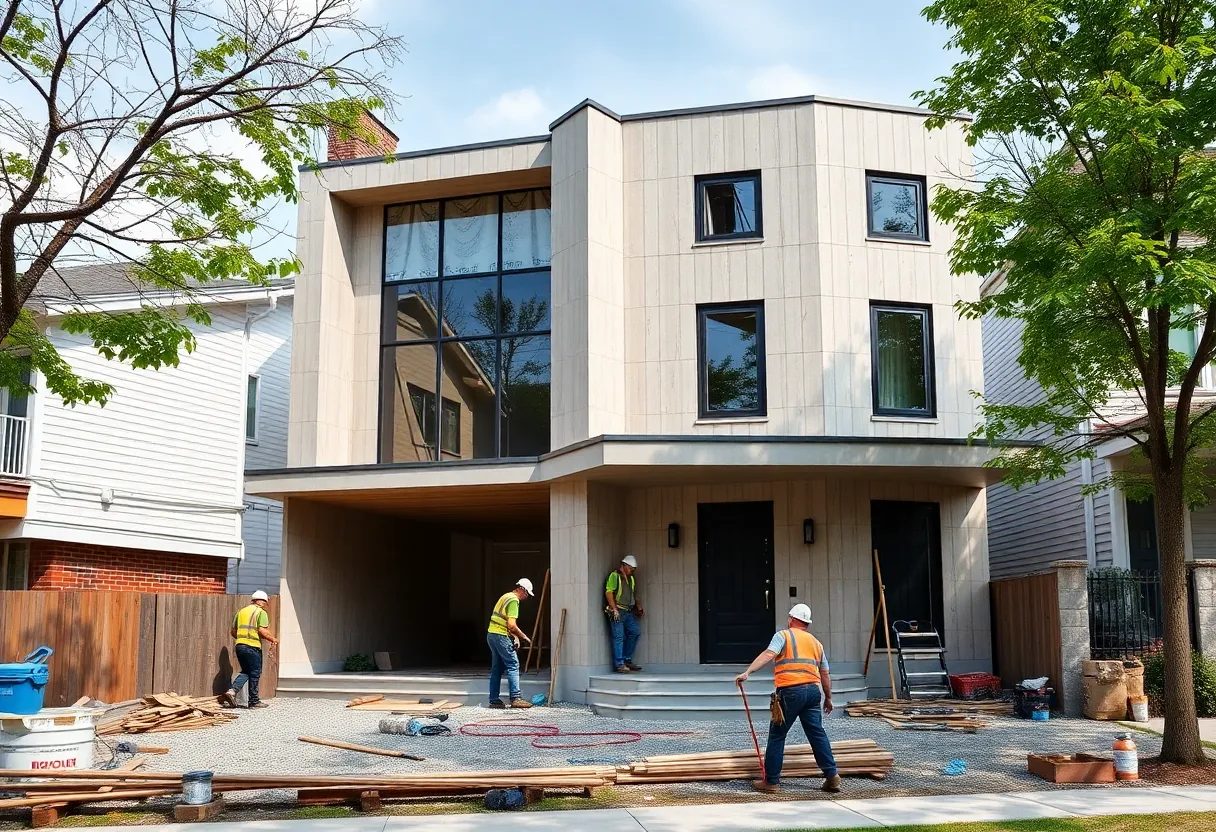News Summary
The ongoing migration of Nigerian healthcare professionals continues to weaken the health system, with doctors fleeing poor conditions. The National Health Summit 2025 highlighted critical challenges and the economic disparities affecting healthcare workers, leading to a significant brain drain. While the government has launched policies to address these issues, analysts remain skeptical about their effectiveness. Meanwhile, Nigeria faces a severe shortage of medical professionals, exacerbated by the trend of migration to countries like the UK, which threatens the quality of healthcare delivery.
Lagos, Nigeria – Persistent Brain Drain Threatens Healthcare System
The ongoing migration of Nigerian healthcare professionals, particularly doctors, continues to weaken the country’s health system, with many now being classified as “economic fugitives.” This term was highlighted at the recent National Health Summit 2025, where discussions centered around the critical challenges facing Nigeria’s medical workforce and the urgent need for systemic reforms.
Growing Exodus of Nigerian Medical Professionals
At the summit, Dr. Sunday Fawole, a Nigerian-born dentist practicing in the United States, addressed the alarming trend of medical professionals leaving Nigeria for better opportunities abroad. Fawole emphasized that Nigerian doctors working overseas are effectively fleeing poor domestic conditions, citing inadequate infrastructure, chronic underfunding, stagnating careers, and governance issues as primary “push factors.”
He stressed that these internal challenges create a more compelling reason for migration than the appealing conditions offered by recipient countries. The phenomenon results in a significant brain drain, which continues despite government efforts to stem the tide.
Economic Disparities and Emotional Toll
The disparity in earnings between Nigerian doctors and their international counterparts is stark. Resident doctors in Nigeria typically earn less than $10,000 annually. Meanwhile, their colleagues in abroad can earn between $100,000 and $300,000, depending on specialization. Such financial gaps are among the main motivators for migration, but the consequences extend beyond economics.
Many migrant doctors experience significant emotional and psychological hardships, including family separation, identity crises, and feelings of guilt. Fawole pointed out that these emotional challenges are compounded by the necessity-driven nature of migration, with many seeking a better future for their families rather than mere personal gain.
Furthermore, doctors returning for medical missions often confront the same challenging realities that prompted their original emigration, revealing the depth of systemic issues within Nigeria’s healthcare infrastructure.
Responses and Policy Measures
In response to the crisis, the government recently signed the National Policy on Health Workforce Migration, aimed at managing healthcare worker movement more proactively. The policy intends to tackle the root causes of shortages, especially in rural and underserved areas, through improved remuneration and better working conditions.
Additionally, there have been efforts to boost medical training and infrastructure through large-scale investments, including a ₦110 billion injection from the Tertiary Education Trust Fund. The funds will be used to modernize healthcare education, upgrade facilities, and reduce medical tourism. These measures are designed to address the availability and quality of healthcare professionals, with an emphasis on retaining talent within Nigeria.
Challenges in Implementation and Concerns
Despite these initiatives, analysts have raised concerns regarding the effectiveness of past policies, noting inconsistent implementation and limited impact. There is skepticism whether current and future strategies can adequately confront the deep-rooted issues of poor remuneration and working conditions.
The shortage of healthcare workers remains critical, with Nigeria currently having a health workforce ratio of 0.363 medical doctors per 1,000 people. This is far below the World Health Organization’s recommended benchmark, contributing to a doctor-patient ratio of 1:9,000, which hampers healthcare delivery.
Recent statistics reveal that about 70% of Nigerian medical professionals migrating abroad choose the United Kingdom. Migration peaked in 2022, with over 3,000 doctors requesting official letters to emigrate. This ongoing trend adversely affects the Nigerian healthcare system, increasing the burden on the remaining medical staff and lowering the quality of care.
International Perspectives and Potential Solutions
Other countries such as Thailand, Cuba, and India have implemented successful strategies to retain healthcare workers, including structured incentives, advanced training opportunities, and improved working conditions. Nigeria’s adoption of similar measures could help stem the tide of migration.
The government’s vision is to stabilize its healthcare workforce by addressing issues related to remuneration, infrastructure, and policy enforcement. A multifaceted approach involving structural reforms, increased investments, and international best practices is considered essential to reversing the current trend and ensuring a resilient healthcare system for Nigeria.
Deeper Dive: News & Info About This Topic
HERE Resources
Additional Resources
- Nigeria Health Watch: Nigeria’s Health Migration Policy
- The Africa Report: Tinubu’s National Policy on Medical Brain Drain
- Premium Times: Healing the Brain Drain
- Wikipedia: Brain Drain
- Vanguard: FG Commits ₦110bn to Curb Brain Drain
Author: STAFF HERE WASHINGTON DC
The WASHINGTON DC STAFF WRITER represents the experienced team at HEREWashingtonDC.com, your go-to source for actionable local news and information in Washington, DC, and beyond. Specializing in "news you can use," we cover essential topics like product reviews for personal and business needs, local business directories, politics, real estate trends, neighborhood insights, and regional news affecting the area—with deep expertise drawn from years of dedicated reporting and strong community input, including local press releases and business updates. We deliver top reporting on high-value events such as the National Cherry Blossom Festival, Kennedy Center Honors, and the Washington Auto Show. Our coverage extends to key organizations like the Greater Washington Board of Trade and Destination DC, plus leading businesses in government contracting and technology that power the local economy such as Lockheed Martin and Amazon. As part of the broader HERE network, we provide comprehensive, credible insights into the dynamic landscape of the Washington metropolitan area.




